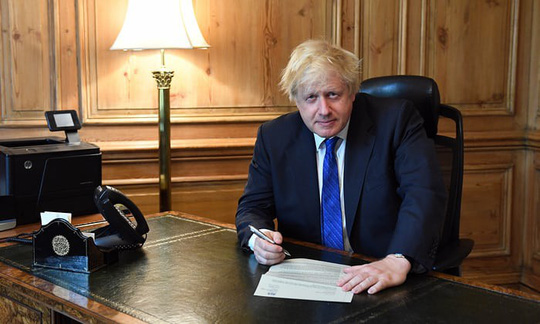Is the only route back to normality through a coronavirus vaccine? That’s what the Prime Minister will suggest today when he addresses the virtual Coronavirus Global Response International Pledging Conference. With the conference aimed at driving forward a collective global effort for a vaccine, Boris Johnson will say only a mass-produced vaccine will truly defeat the virus:
‘To win this battle, we must work together to build an impregnable shield around all our people and that can only be achieved by developing and mass producing a vaccine.’
A vaccine is viewed as the simplest route out of the pandemic. As a result, every country is interested in finding one – with larger, richer countries throwing resources at their own national effort. Governments are also lobbying companies so they can be first in the queue – with 70 treatments under development worldwide. Matt Hancock has spoken of his own desire for the UK to be first to create a vaccine, with a push within government towards finding a vaccine in recent weeks.
But it’s also a process that will be lengthy. Even if scientists defy the odds and find a vaccine by the autumn, mass production for all will take a long time. Projects at Oxford University and Imperial College mean the UK is at the forefront of efforts to find a vaccine, but it’s a different story when it comes to having the capability to produce one at scale. This is an area where the UK is behind many other countries.
Johnson’s comments today – along with the UK’s vaccine task force – are aimed at ushering in a more collaborative effort. The worry in government is that countries like China and America are – as one government figure puts it – adopting an approach of ‘vaccine nationalism’. If they are first to find a vaccine, other countries will find themselves at the back of the queue. Special attention is being paid to which pharmaceutical companies work with scientists to scale up. Notably, Oxford University teamed up with the British pharmaceutical company AstraZeneca to scale up their production.
While the government is pushing for countries to work together, there will also be a big effort over the next few months to bolster the UK’s own capabilities. There’s been a realisation from issues with PPE supply that relying on international supply chains can be unreliable. Even if countries work together to develop a vaccine, it will probably not be enough for the UK to then ask a company in another country to make its supplies. This is why work is underway to have a domestic operation in place. Should a vaccine come to fruition, any governments unable to procure it for the public will face short shrift.







Comments